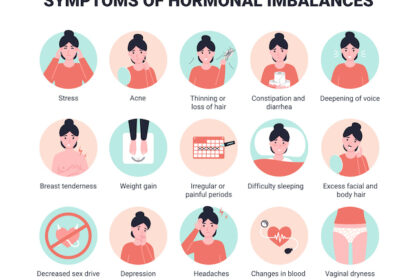The Health Benefits of Sunrise and Sunset Sleep: A Journey Through Circadian Rhythms and Mitochondrial Function
The interplay between our sleep patterns and the natural light-dark cycle has fascinated scientists for decades. The concept of aligning sleep with the sunrise and sunset is not just an ancient practice but one that has profound implications for our health, particularly through the regulation of circadian rhythms and mitochondrial function.
The Science of Circadian Rhythms
Circadian rhythms are 24-hour cycles that are part of the body’s internal clock, running in the background to carry out essential functions and processes. One of the most important and well-known circadian rhythms is the sleep-wake cycle.
These rhythms are influenced by external cues like light and temperature. The primary regulator is the suprachiasmatic nucleus (SCN), a group of cells in the hypothalamus that responds to light and darkness signals from the environment. When the eyes perceive light, the SCN sends signals to various parts of the brain and body to promote wakefulness and alertness. Conversely, darkness triggers the release of melatonin, a hormone that promotes sleep.
Sunrise and Sunset Sleep: A Natural Alignment
Sleeping in alignment with the sunrise and sunset helps to synchronize our circadian rhythms with the natural environment. This practice, often referred to as “solar sleep,” involves going to bed shortly after sunset and waking up around sunrise.
Benefits of Sunrise and Sunset Sleep
- Improved Sleep Quality: Exposure to natural light during the day and darkness at night helps regulate the production of melatonin, leading to better sleep quality. Artificial light, particularly blue light from screens, can disrupt this process, leading to poor sleep.
- Enhanced Mood and Mental Health: Natural light exposure during the day increases serotonin production, which can enhance mood and reduce symptoms of depression and anxiety. Consistent sleep patterns aligned with natural light can also prevent mood disorders.
- Optimized Metabolism: Circadian rhythms influence metabolic processes. Aligning sleep with natural light cycles can optimize digestion, appetite regulation, and insulin sensitivity, reducing the risk of metabolic disorders such as obesity and diabetes.
- Stronger Immune Function: Consistent, high-quality sleep is crucial for immune health. Aligning sleep with natural light cycles supports the production of cytokines, proteins that play a vital role in immune response.
The Role of Mitochondria
Mitochondria, often referred to as the powerhouses of the cell, are responsible for producing the energy (ATP) that cells need to function. They are also involved in other critical processes such as regulating the cell cycle and cell growth.
Mitochondrial Health and Circadian Rhythms
Mitochondrial function is closely tied to circadian rhythms. Research shows that mitochondrial activity follows a circadian pattern, with variations in energy production and oxidative stress throughout the day.
- Energy Production: During the day, mitochondria are more active in producing ATP to meet the body’s energy demands. Aligning wakefulness with daylight ensures that energy production peaks when it is needed the most.
- Oxidative Stress Management: At night, when the body is at rest, mitochondria shift towards repair and maintenance, including managing oxidative stress and repairing damaged cells. Proper sleep aligned with natural cycles enhances these restorative processes.
- Hormonal Regulation: Mitochondria are involved in the production and regulation of hormones, including cortisol and melatonin, which are crucial for maintaining circadian rhythms. Disruptions in sleep can lead to hormonal imbalances, impacting overall health.
Practical Tips for Aligning Sleep with Sunrise and Sunset
- Natural Light Exposure: Spend time outdoors during daylight hours, particularly in the morning, to reinforce your natural circadian rhythms. This can involve simple activities like a morning walk or having breakfast outside.
- Limit Artificial Light: Reduce exposure to artificial light, especially blue light from screens, in the evening. Consider using blue light filters on devices or wearing blue light blocking glasses.
- Consistent Sleep Schedule: Maintain a regular sleep schedule, even on weekends. Going to bed and waking up at the same time every day strengthens circadian rhythms.
- Create a Sleep-Conducive Environment: Ensure your bedroom is dark, quiet, and cool to promote optimal sleep. Blackout curtains and white noise machines can help create an ideal sleep environment.
- Mindful Evening Routine: Develop a relaxing evening routine that signals to your body that it’s time to wind down. This could include activities like reading, gentle stretching, or practicing meditation.
The Broader Impact on Health
Aligning sleep with sunrise and sunset goes beyond just improving sleep quality; it impacts overall health and well-being.
Cardiovascular Health
Adequate sleep aligned with natural light cycles supports cardiovascular health by regulating blood pressure, reducing inflammation, and promoting heart health. Disrupted circadian rhythms and poor sleep are associated with an increased risk of cardiovascular diseases.
Cognitive Function
Proper sleep enhances cognitive function, including memory, attention, and problem-solving skills. It also supports brain plasticity, which is crucial for learning and adapting to new information.
Longevity
Research suggests that maintaining healthy circadian rhythms and mitochondrial function can contribute to longevity. Proper sleep patterns reduce the risk of chronic diseases and promote overall cellular health, potentially extending lifespan.
Conclusion
The alignment of sleep with the natural cycles of sunrise and sunset is a practice deeply rooted in our evolutionary history. This alignment supports circadian rhythms and mitochondrial function, leading to a multitude of health benefits. From improved sleep quality and mood to enhanced metabolism and immune function, the advantages of solar sleep are profound. By making mindful adjustments to our daily routines and environments, we can harness the power of natural light to optimize our health and well-being.





